Goji berries (also known as wolfberries) are the fruits of a small deciduous shrub (Lycium barbarum) which grows mainly in the central and western regions of northern China. The berries are small in size (2-3 cm in diameter when raw) and they have a bright orange-red color. These fruits are usually consumed raw, cooked, or dried (like raisins) and are used in herbal teas, juices, wines and medicines. Extracts from the fruits or root of the plant are used to make food supplements and medicine by Traditional Chinese Medicine practitioners but many western health professionals and health conscious people also use goji berries for their proposed benefits. Many animal and small-scale human studies have been conducted regarding the possible benefits of wolfberries and people have traditionally consumed the fruits for all kinds of ailments but not all proposed uses can be supported by scientific evidence at the moment. It is important to understand that goji berries contain multiple chemicals and nutrients which may be the means through which this plant exerts its effects. Lycium barbarum is prized for its antioxidant and immunomodulatory action and it has traditionally been used for diabetes, high blood pressure, poor circulation, fever, malaria, and cancer. Other conditions that may be beneficially influenced by intake of goji berries include erectile dysfunction, dizziness, ringing in the ears, irritability, cough, and wheezing. Goji berries have been specifically tested for their properties in treating and preventing eye disorders like dry eyes, macular degeneration, and blurred vison. Lycium barbarum extracts may be used effectively as an eye tonic or a preventative measure against age-related eye diseases. Other uses of the berries include anti-cancer effects, longevity promotion, support for kidney and liver function, bone and muscle strengthening, and better energy levels.
Wolfberries contain a large number of nutrients and chemicals that may be responsible for the health benefits ascribed to consuming the fruits or their extracts in supplemental form. Certain compounds lower blood pressure and blood glucose while others provide significant antioxidant effect. The red-orange pigments of goji berries signify the presence of powerful natural antioxidant molecules which help the body deal with conditions characterized by higher oxidative stress. For example, goji berries provide vitamin C, vitamin B2, vitamin A, iron, selenium and many polysaccharides which provide specific beneficial effects. The immune function may be particularly affected and improved by the Lycium barbarum polysaccharides and people may experience reduced fatigue when staying or living at high altitude by intake of these nutrients. Healthy immune response, maintaining good night vision, and protection of the skin and eyes from damage due to aging or environmental factors may also be expected from taking goji berry extracts as they contain certain carotenoid compounds and chemicals related to vitamin A which are important for the health of these organs. Some research and a number of scientists suggest that goji berry extracts may improve mood, protect against age-related diseases including dementia, and possess anti-aging, anti-tumor, immune-stimulatory and cell-protection effects. Many of these benefits may be a result of the antioxidant activity of Lycium barbarum components. However, scientists have also conducted experiments that show goji berries protect the nervous system and the activity of neurons not only from oxidative damage but also from other types of neurologic stress and assaults that contribute to neurodegenerative diseases like Alzheimer’s disease. Thus, wolfberries may influence our health in a positive way through many different pathways and the many proposed benefits related to consuming the fruits or their extracts are probably due to the synergy of all nutrients contained in the berries and not only a result of one single component.
Multiple studies with animals have been conducted in order to find the mechanism of action of goji berry supplementation. As expected, wolfberries work by activating different molecular pathways and they can benefit organs and systems through different mechanisms, some of which are due to the antioxidant action of Lycium barbarum while others are not related to this effect – specific actions of goji berry extracts concern DNA integrity and repair, cellular membrane receptors, mitochondrial activity, and stimulation of gene expression. For example, lipid peroxidation in the livers of mice is reduced after the animals receive goji berries andthe swelling of their liver mitochondria is also decreased. This provides protection from oxidative stress in the liver and improves mitochondrial health. Other studies find that treating rats with Lycium barbarum decreases blood levels of glucose and oxidative molecules while at the same time it increases the endogenous antioxidant enzymes in the body. Also, such extracts reduce cellular DNA damage in peripheral lymphocytes. Scientists suggest that wolfberry extracts may improve blood glucose management which in turn reduces oxidative stress levels and protects DNA integrity. This means that goji berry extracts may protect mammals from the complications of diabetes and even reduce carcinogenesis. Furthermore, research proves that Lycium barbarum extracts reduce the concentration of blood lipids (such as triglycerides and cholesterol), blood glucose, and insulin and improve the insulin sensitivity of diabetic animals. The mechanism of action is thought to involve increasing the number of glucose transporters on cellular membranes and better insulin signaling inside cells. Since goji berries are also proposed to possess aphrodisiac activity some research focuses on the reproductive system and finds benefits of wolfberry extracts. For example, heat exposure and stress damages the testicular tissue of treated animals. Those animals receiving Lycium barbarum had protected reproductive organs, improved antioxidant defenses, and raised sexual hormone levels. The goji berry extracts had protective effect against DNA oxidative damage in the mouse testicular cells and the reproductive function of the animals was improved as well as their sperm quantity and quality. Because of these results it is suggested that wolfberries may help with fertility issues and may be used as an aphrodisiac just like many Chinese men have been doing traditionally.
The above mentioned results from animal studies are supported by trials with human subjects which are a much stronger level of evidence for the beneficial health effects of consuming goji berries or their extracts. Since the conducted human studies generally support results from animal research we can infer that using rat or mouse experiments regarding the effects of Lycium barbarum intake may be appropriate. One area in which goji berries have been tested in humans concerns their antioxidant prowess. In one trial, extracts of goji berry were consumed by Chinese subjects for one month and their levels of oxidative stress and antioxidant enzymes were measured. Higher amounts of oxidative molecules can overwhelm the antioxidant defenses of the human body and can lead to tissue damage. After intake of a standardized wolfberry extract the participants had increased levels of protective anti-oxidant liver enzymes and reduced by-products of oxidative damage in the blood by almost 10%. Importantly, these benefits came from extracts containing a standardized amount of Lycium barbarum polysaccharides and we cannot conclude that similar results can be expected from regular consumption of goji berries as the levels of this active substance may vary significantly between different batches of goji berries sold at the local market, for example. Thus, intake of a supplement may offer more certainty about this specific effect. Another trial was conducted in 50 people aged between 55 and 72 years who were given wolfberries (in the form of juice) or placebo for 30 days. The results showed that the people receiving the goji berry juice had increased their levels of specific antioxidant enzymes by about 8-10% compared both to their baseline levels before the experiment and to the placebo group. A blood marker of oxidative stress was also reduced by around 9% in the goji berry consumers. The scientists concluded that intake of goji berries and their extracts might lead to stimulation of endogenous antioxidant defenses and might reduce or prevent free radical-related conditions. These conclusions are further corroborated by an analysis of 4 clinical studies that researched the effects of consuming goji berries on many outcomes concerning general well-being, cognitive function, and quality of life. All 4 experiments had 161 participants in total with ages between 18 and 72 years who either consumed wolfberries or placebo for 14-30 days. The group taking the active ingredient showed significant improvements infatigue, dizziness, sleep quality, weakness, stress, mental acuity, ease of awakening, shortness of breath, and overall feelings of health and well-being.
Another more specific benefit of goji berry intake relates to eye health and vision. One way in which extracts from Lycium barbarum helps eyesight is through their antioxidant effect and their high content of molecules with specific benefit to the eyes such as zeaxanthin. In one trial, elderly people (age range 65 to 70 years) received either a wolfberry preparation or a placebo for 90 days and different biomarkers of their eye health were examined. It was found that after the three-month period, the subjects in the placebo group had worsened eye pigmentation and experienced changes in their eye structure that are usually associated with impaired eye function. The goji berry consumers were protected from these negative consequences and their levels of zeaxanthin as well as their general antioxidant capacity increased by 26% and 57%, respectively. In other studies, scientists suggest that the benefits of consuming wolfberry extracts like nourishing the liver, improving eyesight, and protection against neurodegenerative disease come not only from their content of zeaxanthin and other carotenoids but also from multiple other compounds. These include polysaccharides and small molecules such as betaine, cerebroside, beta-sitosterol, p-coumaric, and various vitamins. Extracts of goji berry polysaccharides have been shown to protect retinal cells and neurons from the toxicity of beta-amyloid peptides (which accumulation leads to Alzheimer’s disease) and to reduce levels of molecules signaling stress and cell death. One experiment tested the effects of a combination of herbs including goji berries and eye drops compared to using eye drops alone for improving the symptoms of dry eyes in older women. After 1 month of treatment, the total effective rate was 86% (62 women from a total of 72) in the combined treatment group and 67% (48 subjects from a total of 72) in the group with the eye drops alone.Total scores for subjective symptoms as well as various objective measures of the condition were also improved more in the group with goji berry intake. The conclusion of this study is that the combination of artificial tears with goji berries and other herbs provides a greater therapeutic effect for postmenopausal women suffering from dry eyes compared to using eye drops alone. The combined treatment can better treat eye symptoms and is superior in the promotion of tear secretion in the eyes of these individuals.
Supplementing goji berries may benefit human health in several other ways – wolfberries have been shown to strengthen the immune system, to improve metabolic rate, and to help fight cancer. One study tested the effects of supplementing wolfberries on the immune function in elderly people who may have a poor response to vaccinations because of their age. The participants were 150 healthy Chinese people between the ages of 65 and 70 years who supplemented either wolfberry extracts or placebo for three months. The scientists measured the immune response of these subjects to influenza vaccination as well as their inflammatory and physical status. Compared to the placebo group, the wolfberry group had enhanced response to the antigenic challenge without over-affecting the immune system as their influenza-specific immunoglobulin G levels were significantly increased between days 30 and 90 while the levelsof inflammatory markers or hypersensitivity reactions were unchanged. Another trial assessed the intake of goji berry juice on the immune function of 60 people aged 55-72 years for one month. Again, the results favored the goji berry group who had a greater number of lymphocytes and increased levels of immunoglobulin G circulating in their blood compared to their baseline levels and to the placebo group. These effects suggest improved immuno-surveillance against pathogens. Additionally, the wolfberry group exhibited decreased fatigue, improved sleep, and better short-term memory and concentration while the placebo group had no changes in these measures. The results of these studies suggest that Lycium barbarum extracts support the immune system of elderly subjects, who usually have compromised immune functions, and improve their subjective feelings of well-being without any negative side effects. Regarding problems with weight and metabolism goji berries may also help as extracts of the plant may reduce waist size and improve energy expenditures only after a two-week intake. A study tested the intake of goji berries combined with diet and exercise and found that overweight adults had increased energy expenditure by around 10% for several hours after drinking wolfberry juice and after continued intake for two weeks their waist circumference decreased by 5.5 cm compared to their baseline measurement and to the placebo group which experienced no changes. A popular clinical trial tested the effects of goji berry extracts in 75 patients with different forms of advanced cancer affecting the skin, kidneys, colon, lung, or throat. Some patients received only immunotherapy for their cancer while others received immunotherapy and Lycium barbarum polysaccharides. The results showed that the individuals receiving the combined treatment had a better response rate to their therapy (41%) compared to the group with immunotherapy alone (16%). Objectively measured regression of cancer was more likely to be achieved in people taking the wolfberry extract and these patients also had longer remission rates and better immune system activity.
The doses for supplementing goji berry extracts vary depending on the health status of the individual as well as his/her age. In general, a healthy person can safely consume standardized Lycium barbarum extracts short-term and it is advisable to follow the instructions on the label for the daily amount to be consumed. It is recommended to supplement for no more than three consecutive months after which a break from intake should be taken for a couple of months. However, several conditions require special mention when taking wolfberry supplements. Pregnant or breast-feeding women are not advised to take wolfberries as they contain compounds associated with miscarriage. Some people who are allergic to nuts, tobacco, peaches, and tomatoes may also experience allergic reactions to goji berries. People who take medications for high blood pressure or high blood glucose should consult with their physicians first before taking goji berry supplements because combining these medications with the supplements may decrease blood pressure too much or lead to hypoglycemia. Also, Lycium barbarum may slow the metabolism of medications used to slow blood clotting which may increase the risk of bleeding or bruising because the activity of these drugs is prolonged.







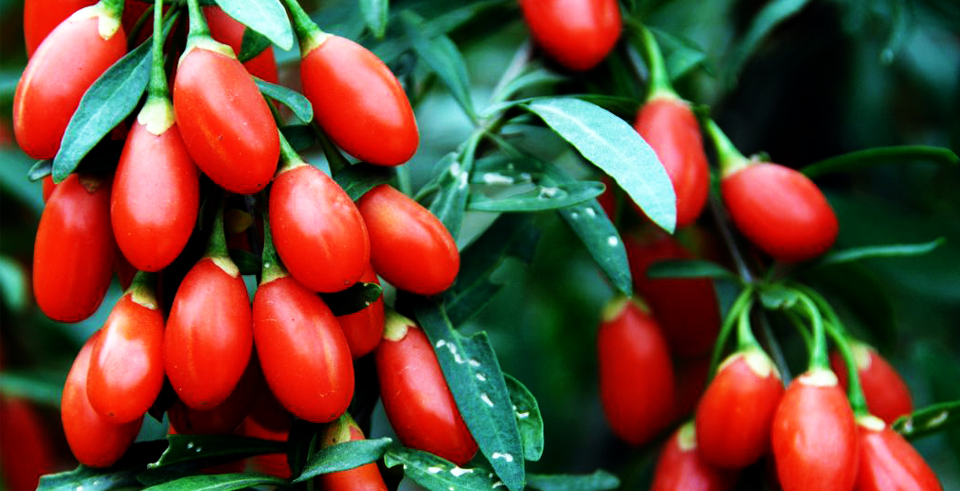






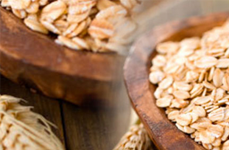
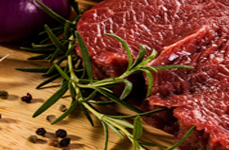
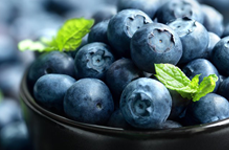



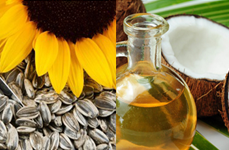



LEAVE A COMMENT :
Comments sort : Newest / Oldest / Most Upvoted